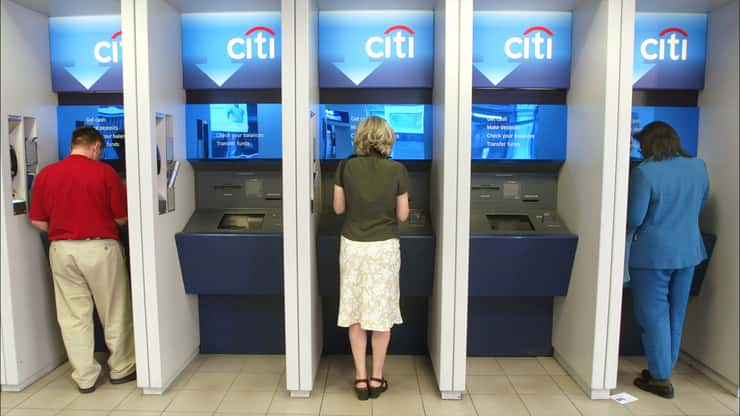Source: Market Watch
Twitter shares were initially up and Tesla shares down after news of Musk’s bid to buy the social media company at more than $43 billion

What should retail investors make of Elon Musk’s bid to buy Twitter?
While the world’s richest man knocks at Twitter’s door, is opportunity knocking for the person playing the stock market to profit off Twitter, Tesla and the high-stakes, high-profile storyline?
Maybe so, financial advisers told MarketWatch — or maybe not. The wrong wagers could mean the unfolding boardroom drama might turn into a personal-finance tragedy for a retail investors thinking they’re grabbing a quick buck.
Twitter shares TWTR, -11.30% closed down 1.7% on Friday, at around $45.08 a share.
That’s still well below Musk’s offer to buy remaining shares at $54.20, if Twitter’s board agrees to what Musk calls his “best and final” offer.
That is still a nice premium on the stock’s Wednesday $45.85 closing price, even if, as Cowen analyst John Blackledge observed, the offer is near the midpoint of Twitter’s 52-week trading range.

Tesla shares were trading down Thursday and Friday, indicating investor concern that Musk could be stretching himself thin. They closed on Friday at $985, a 3.7% drop.
Musk said at a TED Talk event Thursday that “there is” a “Plan B” to acquire the company if his current offer is rejected.
If plump long-term investment returns are the goal, many advisers say it’s best to tune out the Twitter-Tesla hype. And it’s also good to remember that there’s a difference between investing and speculating, they add.
Tools for Investing Success

“It may be tempting to want to dabble in the buzzy names such as Tesla and Twitter, but you’re likely much better off just avoiding the news around these companies and sticking to consistent and disciplined investment in index funds,” said Erik Baskin of Baskin Financial Planning in Dayton, Ohio.
There’s that Wall Street chestnut to “buy the rumor, sell the news.” But, as Baskin noted, “There are algorithms out there trading millions of dollars in these companies based on news stories and you have almost no chance to consistently profit from trading based on news as the market price reflects that news instantly.”
“People looking to act on short term and fleeting news stories far removed from the actual business of the stock they are buying, are speculating in the hopes of selling something tomorrow for more than they paid today — they aren’t actually hoping to own a business at all,” said Elliot Pepper, a financial planner and tax director at Northbrook Financial in Baltimore.
There’s nothing wrong with speculation, just as long as people can see it for what it is and not get it confused with investing, Pepper said. “Successful investing should, for the most part be boring; speculation should be exciting.”
Musk’s bid for Twitter was rocket fuel for people on Reddit’s WallStreetBets trying to guess Twitter’s board response, Musk’s endgame on Twitter, the effect on Tesla and what it all meant to them. “Not gonna lie if Tesla drops enough I might be tempted to throw 30k in,” one user wrote.
If you’re going to play the market
Here’s where it’s important to have a plan if you’re going to get pulled down the road of stock picking, said Lacy Rogers, founder of the Dedicated Dollar.
Start with the fact that for every boast of profits a person hears from a successful short-term trader, someone’s not hearing the multiple other losses that happened too. One example? A $900,000 account Rogers heard of that contracted to $80,000 in hours after some bad options trades.
But after all other financial goals and obligations are met, Rogers said, “it isn’t always a bad idea to have some fun with a small percentage of your portfolio. If you have an interest in individual stocks or alternative investments like crypto, using a VERY small portion of your funds (think: a budget about the amount of a weekend bar tab) to experiment and learn can be a great opportunity for personal education and growth.”
Keeping any stock-market play money at less than 10% of investable assets is a good approach, said Bryan Minogue, founder of Kardinal Financial. Others say it shouldn’t be more than 5%. Better yet, Minogue added, make sure there’s at least 15% or 20% going to diversified funds in IRAs and 401(k)s before the stock purchases.
Set personal standards on what to expect from certain stock investments, he said. “I wince a little when I have conversations with people talking about their stock portfolio and how it was up 10% in a given year… but the market was up 20%.”
One way to do it is to compare the returns to a diversified fund tracking the stock market as a whole, Minogue said. “A second order, and equally important, item to track is your after-tax returns if you are making these stock picks in a taxable account,” he said.
Find that performance benchmark, spot where to get in and where to get out, said Rockie Zeigler of RP Zeigler Investment Services in Peoria, Ill. That could be a quantifiable point like a market performance metric, a total amount of money a person is financially prepared to lose or some other threshold.
But stick with something, Zeigler said. “If for no other reason, stick to it for your own sanity.”
